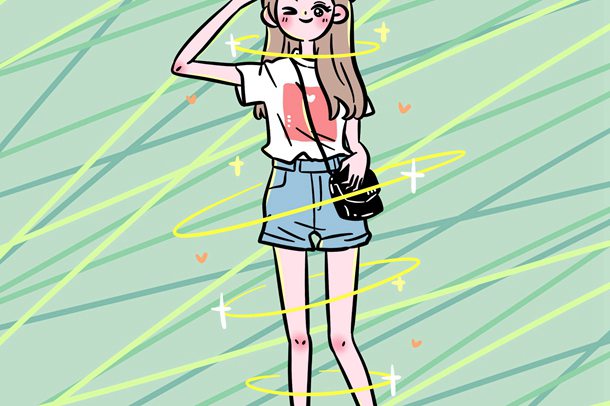经典英语美文摘抄带翻译
时间:2023-03-27 05:49 来源:未知 作者:丁雪竹 点击:载入中...次
美文是什么?美文的概念是开放而自由的,好散文是美文,好诗歌是美文,好小说也是美文,小编给大家整理了经典英语美文摘抄,希望会对大家有所帮助!
唯美英语美文摘抄 For every single act that is senselessly destructive, there are thousands more small, quiet acts of love, kindness and compassion. For every person who seeks to hurt, there are many, many more who devote their lives to helping and to healing. 尽管有很多事让人忧虑,但相比而言,值得感激的事要多得多。尽管生命的美好有时被蒙上阴影,但它却永远不会被埋没。 There is goodness to life that cannot be denied. In the most magnificent vistas and in the smallest details, look closely, for that goodness always comes shining through. 相对于每一个无谓的破坏行为而言,都有更多数以千计更为微小的,包含着爱,友善和同情的举动静静地上演着。相对于每一个试图伤害他人的人而言,都有更多的人致力于帮助他人,治愈他人的创伤。 There is no limit to the goodness of life. It grows more abundant with each new encounter. The more you experience and appreciate the goodness of life, the more there is to be lived. 生命的美好不能否认。 在最为壮观的前景和最为琐碎的细节中,请仔细观察,因为美好的事物总是散发着耀眼的光芒闪亮登场。 Even when the cold winds blow and the world seems to be covered in foggy shadows, the goodness of life lives on. Open your eyes, open your heart, and you will see that goodness is everywhere. 生命的美好没有界限。每一次相遇都会使这美好变得越发丰富。你经历得越多,越能欣赏生命的美好,生命中的美好就会变得越多。 Though the goodness of life seems at times to suffer setbacks, it always endures. For in the darkest moment it becomes vividly clear that life is a priceless treasure. And so the goodness of life is made even stronger by the very things that would oppose it. 即使当寒风袭来,整个世界似乎被雾气掩盖之时,生命的美好仍会存在。睁开双眼,打开心扉,你就会发现这美好无处不在。 小编推荐:励志英语美文摘抄150字带翻译 励志英语美文摘抄 Three Days to See(Excerpts) 假如给我三天光明(节选) All of us have read thrilling stories in which the hero had only a limited and specified time tolive. Sometimes it was as long as a year, sometimes as short as 24 hours. But always we wereinterested in discovering just how the doomed hero chose to spend his last days or his lasthours. I speak, of course, of free men who have a choice, not condemned criminals whosesphere of activities is strictly delimited. Such stories set us thinking, wondering what we should do under similar circumstances. Whatevents, what experiences, what associations should we crowd into those last hours as mortalbeings, what regrets? Sometimes I have thought it would be an excellent rule to live each day as if we should dietomorrow. Such an attitude would emphasize sharply the values of life. We should live eachday with gentleness, vigor and a keenness of appreciation which are often lost when timestretches before us in the constant panorama of more days and months and years to come.There are those, of course, who would adopt the Epicurean motto of “Eat, drink, and bemerry”. But most people would be chastened by the certainty of impending death. In stories the doomed hero is usually saved at the last minute by some stroke of fortune, butalmost always his sense of values is changed. He becomes more appreciative of the meaning oflife and its permanent spiritual values. It has often been noted that those who live, or havelived, in the shadow of death bring a mellow sweetness to everything they do. Most of us, however, take life for granted. We know that one day we must die, but usually wepicture that day as far in the future. When we are in buoyant health, death is all butunimaginable. We seldom think of it. The days stretch out in an endless vista. So we go aboutour petty tasks, hardly aware of our listless attitude toward life. The same lethargy, I am afraid, characterizes the use of all our faculties and senses. Only thedeaf appreciate hearing, only the blind realize the manifold blessings that lie in sight.Particularly does this observation apply to those who have lost sight and hearing in adult life.But those who have never suffered impairment of sight or hearing seldom make the fullest useof these blessed faculties. Their eyes and ears take in all sights and sounds hazily, withoutconcentration and with little appreciation. It is the same old story of not being grateful forwhat we have until we lose it, of not being conscious of health until we are ill. I have often thought it would be a blessing if each human being were stricken blind and deaffor a few days at some time during his early adult life. Darkness would make him moreappreciative of sight; silence would teach him the joys of sound. 假如给我三天光明(节选) 我们都读过震撼人心的故事,故事中的主人公只能再活一段很有限的时光,有时长达一年,有时却短至一日。但我们总是想要知道,注定要离世人的会选择如何度过自己最后的时光。当然,我说的是那些有选择权利的自由人,而不是那些活动范围受到严格限定的死囚。 这样的故事让我们思考,在类似的处境下,我们该做些什么?作为终有一死的人,在临终前的几个小时内我们应该做什么事,经历些什么或做哪些联想?回忆往昔,什么使我们开心快乐?什么又使我们悔恨不已? 有时我想,把每天都当作生命中的最后一天来边,也不失为一个极好的生活法则。这种态度会使人格外重视生命的价值。我们每天都应该以优雅的姿态,充沛的精力,抱着感恩之心来生活。但当时间以无休止的日,月和年在我们面前流逝时,我们却常常没有了这种子感觉。当然,也有人奉行“吃,喝,享受”的享乐主义信条,但绝大多数人还是会受到即将到来的死亡的惩罚。 在故事中,将死的主人公通常都在最后一刻因突降的幸运而获救,但他的价值观通常都会改变,他变得更加理解生命的意义及其永恒的精神价值。我们常常注意到,那些生活在或曾经生活在死亡阴影下的人无论做什么都会感到幸福。 然而,我们中的大多数人都把生命看成是理所当然的。我们知道有一天我们必将面对死亡,但总认为那一天还在遥远的将来。当我们身强体健之时,死亡简直不可想象,我们很少考虑到它。日子多得好像没有尽头。因此我们一味忙于琐事,几乎意识不到我们对待生活的冷漠态度。 我担心同样的冷漠也存在于我们对自己官能和意识的运用上。只有聋子才理解听力的重要,只有盲人才明白视觉的可贵,这尤其适用于那些成年后才失去视力或听力之苦的人很少充分利用这些宝贵的能力。他们的眼睛和耳朵模糊地感受着周围的景物与声音,心不在焉,也无所感激。这正好我们只有在失去后才懂得珍惜一样,我们只有在生病后才意识到健康的可贵。 我经常想,如果每个人在年轻的时候都有几天失时失聪,也不失为一件幸事。黑暗将使他更加感激光明,寂静将告诉他声音的美妙。 短篇小说英语美文 A Lifelong Career As food is to the body, so is learning to the mind. Our bodies grow and muscles develop with the intake of adequate nutritious food. Likewise, we should keep learning day by day to maintain our keen mental power and expand our intellectual capacity. Constant learning supplies us with inexhaustible fuel for driving us to sharpen our power of reasoning, analysis, and judgment. Learning incessantly is the surest way to keep pace with the times in the information age, and an infallible warrant of success in times of uncertainty. Once learning stops, vegetation sets in. It is a common fallacy to regard school as the only workshop for the acquisition of knowledge. On the contrary, learning should be a never-ending process, from the cradle to the grave. With the world ever changing so fast, the cease from learning for just a few days will make a person lag behind. What's worse, the animalistic instinct dormant deep in our subconsciousness will come to life, weakening our will to pursue our noble ideal, sapping our determination to sweep away obstacles to our success and strangling our desire for the refinement of our character. Lack of learning will inevitably lead to the stagnation of the mind, or even worse, its fossilization, Therefore, to stay mentally young, we have to take learning as a lifelong career. 一生的事业 学习之于心灵,就像食物之于身体一样。摄取了适量的营养食物,我们的身体得以生长而肌肉得以发达。同样地,我们应该日复一日不断地学习以保持我们敏锐的心智能力,并扩充我们的智力容量。不断的学习提供我们用不尽的燃料,来驱使我们磨利我们的推理、分析和判断的能力。持续的学习是在信息时代中跟时代并驾齐驱的最稳当的方法,也是在变动的世代中成功的可靠保证。 一旦学习停止,单调贫乏的生活就开始了。视学校为汲取知识的唯一场所是种常见的谬误。相反地,学习应该是一种无终止的历程,从生到死。由于世界一直快速地在变动,只要学习停顿数日就将使人落后。更糟的是,蛰伏在我们潜意识深处的兽性本能就会复活,削弱我们追求高贵理想的意志,弱化我们扫除成功障碍的决心,而且扼杀我们净化我们人格的欲望。缺少学习将不可避免地导致心灵的停滞,甚至更糟地,使其僵化。因此,为了保持心理年轻,我们必须将学习当作一生的事业。 (责任编辑:ku987小孩) |
